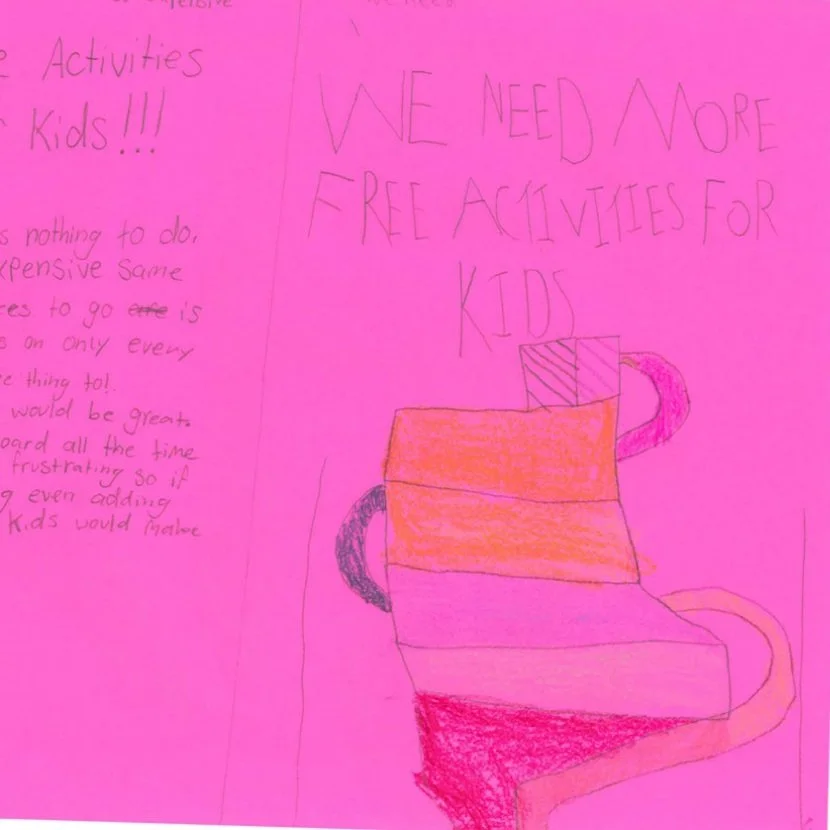The Ngulluk Moort, Ngulluk Boodja, Ngulluk Wirin (Our Family, Our Country, Our Spirit) Study is working with the leadership and staff at foster care agencies and community members to provide information about cultural connection, and cultural activity and resources for Aboriginal children living in non-Aboriginal care arrangements. In today’s post, they report on the outcomes of ‘The Truth of Our Stories’ , a cultural training workshop with a focus on truth-telling.
Read MoreProfessor Hannah Badland from RMIT University explores why neighbourhoods matter for the health of children with disability, an area largely overlooked in Australian disability policy. This blog draws on an article published this week by Hannah and colleagues from RMIT University, which shows that Australian disability policy does not capture the complexity of this issue.
Read MoreIn their new article for a special issue of the Australian Economic Review, Sharon Bessell, Cadhla O’Sullivan, Trevor Rose, Megan Lang and Talia Avrahamzon, discuss the need for a child-centred measurement of poverty in Australia.
Read MoreIn this post, Karina Harback shows why “Inspire Connections” offers more than just time with horses—it’s a striking example of what becomes possible when communities are empowered to respond creatively to children’s needs. Partly funded by Communities for Children in Southern Tasmania, this equine-facilitated learning program shows how intelligent support can unlock locally driven, strengths-based initiatives. As a teacher and Equine Facilitated Learning Practitioner, Karina continually adapts the program to create a responsive, safe, and relational space where students develop emotional regulation, self-awareness, and confidence—skills often out of reach in traditional classrooms. At its heart, this is a story about what happens when community, care, and connection come together - and why enabling place-based responses is key to supporting all children to thrive.
Read MoreIn a world where even after-school chess is expected to polish a child’s critical thinking résumé, the pressure to prove every moment's utility has reshaped how we talk about education. But what if children themselves have a different idea? This post by Megan Lang explores how Children’s University challenges narrow definitions of learning, and what happens when we start listening to children’s own accounts of joy, curiosity, and connection beyond the classroom.
Read MoreAhead of the International Day of Families on 15th May, Dr Karen Villanueva and colleagues from the Social Equity Research Centre at RMIT University, along with researchers from the University of South Australia, Murdoch Children’s Research Institute, and the University of Montreal, explore why neighbourhoods matter for young children.
Read MoreAs the federal election campaign begins ahead of Saturday, 3 May 2025, one question stands out: how can we meaningfully engage young Australians—now the largest voting bloc, led by Gen Z and Millennials? In today’s post, Planning Saw (@PlanningSaw) and Cham Kim, both final-year medical students at the University of Melbourne and members of the Future Healthy Countdown 2030 Working Group, explore how best to involve young people in shaping Australia’s democratic future.
Read MoreHealth experts are concerned about poor nutritional quality and misleading marketing of many commercially available foods for infants and toddlers. In today’s post, VicHealth (@VicHealth) Research Fellow Alexandra Chung (@Chung_Alexandra) from Monash University (@Monash_FMNHS @MonashNutrition) explains how government regulation could improve these products and protect the health of young children in Australia.
Read MoreThis year, Anti-Poverty Week 2024 (13-19 October) continues its campaign to end child poverty in Australia. Dr Bonnie Searle (@BonnieSearle3) from The University of Queensland (@UQ_News) and the Life Course Centre (@lifecourseAust) has been examining meals in early childhood centres for children experiencing poverty, and how ensuring the quality and quantity of the food can help children thrive from an early age.
Read MoreThis week's posts are being sourced by the Life Course Centre(@lifecourseAust) to continue to the conversation on social and economic disadvantage following last week’s Anti-Poverty Week (@AntiPovertyWeek). Today @lifecourseAust researchers share approaches that could help end child poverty in Australia.
Read MoreThis week Prime Minister Anthony Albanese announced the government's plan to introduce legislation to ban younger teens from social media. Today, Cadhla O’Sullivan (@CadhlaOSull) and Sharon Bessell (@BessellSharon) from the Children’s Policy Centre at ANU, highlight what other approaches are worth considering.
Read MoreFood marketing is a tried and tested strategy used to influence children’s diets, most commonly promoting unhealthy food and sugary drinks. In today’s post, VicHealth (@VicHealth) Research Fellow Alexandra Chung (@Chung_Alexandra) from Monash University (@Monash_FMNHS) explains some of the ways in which food industry marketing targets parents to influence young children’s diets.
Read MoreThis is the final part of a 3-part series by Sharon Bessell and Cadhla O’Sullivan from the Children’s Policy Centre at ANU. Today’s post covers welfare policy narratives of individual blame and how they don’t reflect the reality of children’s lives.
Read MoreThis is the second post in a 3-part series from the Children’s Policy Centre at ANU, focusing on childhood poverty and wellbeing indicators. Today Cadhla O’Sullivan, Megan Lang and Sharon Bessell highlight the gaps for children in the middle years, why this matters, and the importance of listening to children to understand their experiences of poverty.
Read MoreThis is the first post in a 3-part series by Sharon Bessell (@BessellSharon) and Cadhla O’Sullivan (@CadhlaOSull) from the Children’s Policy Centre at ANU. Today they identify some trends from their analysis of poverty and wellbeing.
Read MoreChildren and young people are essential voices and forces for change in public health, yet they are not included in climate discussions and decision-making. In today’s post, public health researchers from Deakin University’s Institute for Health Transformation (@IHT_Deakin) Grace Arnot (@GraceArnot), Dr Hannah Pitt (@HannahLPitt) and Dr Simone McCarthy (@SimoneNicoleM) highlight the important knowledge and experience that children and young people have, and call for their greater inclusion in climate decision-making and public health governance.
Read MorePublic health research generates a wealth of evidence but there are challenges when it comes to making that evidence available to audiences beyond the research sector. In today’s post, VicHealth (@VicHealth) Research Fellow Alexandra Chung (@Chung_Alexandra) of Monash University (@MonashNutrition) discusses a unique project that demonstrates the value of collaborative approaches to create and share knowledge with policymakers.
Read MoreFor Anti-Poverty Week 2023, Dr Ana Gamarra Rondinel [@AnaGamarraRondi] Melbourne Institute: Applied Economic & Social Research [@MelbInstUOM] and Life Course Centre (@lifecourseAust) and Dr Anna Price The University of Melbourne [@UniMelb] and Centre for Community Child Health, Murdoch Children's Research Institute [@MCRI_for_kids] explore the interplay between first time parenthood, financial security, and early child development.
Read More




















